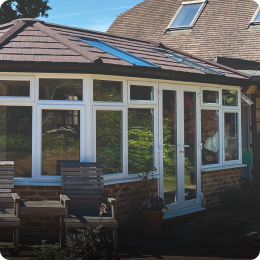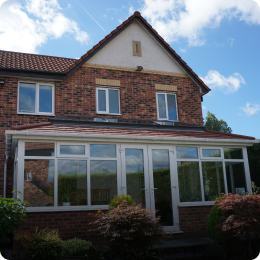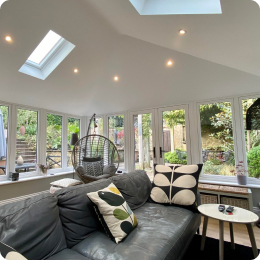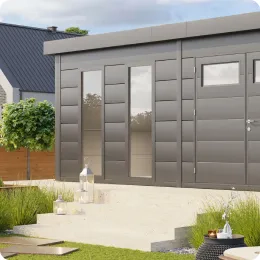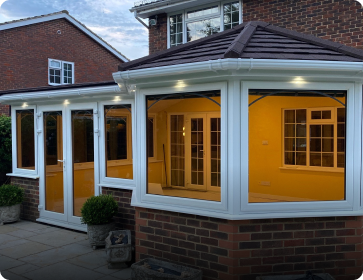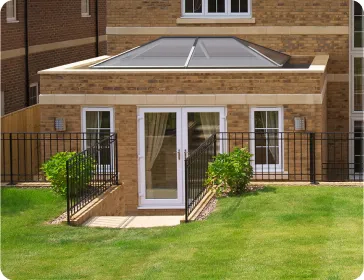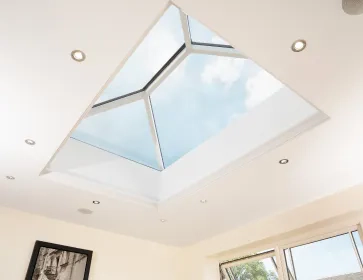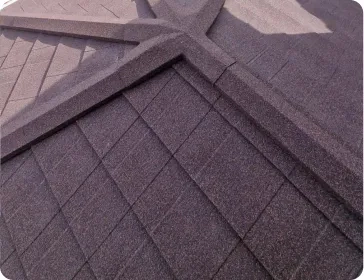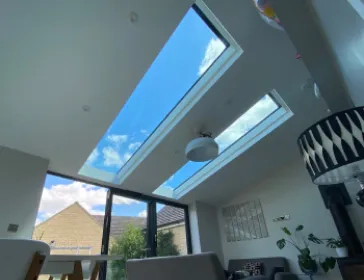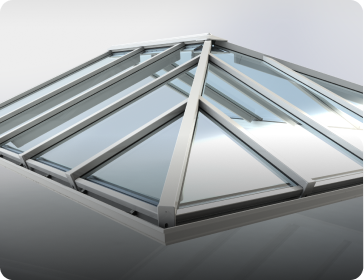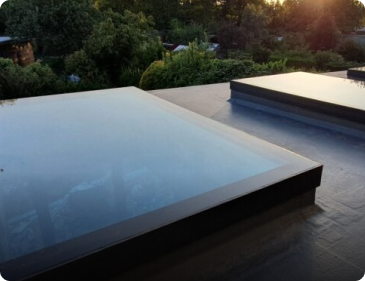
Thinking of renovating a house? Whether you’re preparing to sell or just want to make your space more enjoyable, investing in the right areas can make a big difference in the return you see.
From clever upgrades to stylish renovations, you can boost your home’s value and make it more appealing to potential buyers. In this guide, we’ll share 10 ideas to boost your home’s value and make it stand out in the market.
The Appeal of Renovating a House
Renovating a house can enhance your home’s functionality, which is a big plus for buyers. Adding practical features like built-in storage, a home office, or extra living space can address common needs and make your property stand out. Buyers often look for homes that fit their lifestyles, so these upgrades can make your home more appealing and functional.
Energy efficiency is another key area where renovations can add value. Upgrading to energy-efficient windows, better insulation, or modern HVAC systems can lower utility bills and make your home more comfortable. These improvements are not only environmentally-friendly, but also attractive to buyers who value cost-saving features and sustainability.
What Adds Value to a House?
From simple DIY projects to renovating a house on a larger scale, you’ll discover how targeted improvements can make your home more attractive to buyers and more enjoyable for you.
1. Upgrading Your Kitchen
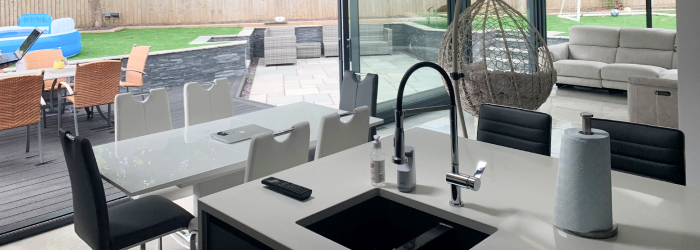
The kitchen is often considered the heart of the home, and for good reason. It’s a space where families gather, and memories are made. When renovating a house, adding a modern, well-designed kitchen can be a major selling point for potential buyers.
What to Upgrade:
- Appliances: Replacing outdated appliances with sleek, energy-efficient models can make a huge difference. Stainless steel appliances, in particular, are popular and give a modern touch.
- Countertops: Upgrading to high-quality materials like granite, quartz, or marble can add a touch of luxury and increase the kitchen’s appeal.
- Cabinets: Freshening up your cabinets with a new coat of paint or swapping them out for more contemporary designs can transform the space. Adding modern hardware can also make a big impact.
- Kitchen Island: Adding a kitchen island not only enhances functionality but also provides additional workspace and storage. It’s a great feature for both cooking and entertaining.
House Renovation Costs and Returns:
- Average Upgrade Price: The cost of upgrading a kitchen can vary widely depending on the extent of the changes, the quality of materials and your location. On average, in 2024, a basic kitchen renovation can cost around £5,000- £17,500. This typically includes new appliances, countertops, cabinets, and some additional features like a kitchen island.
- Average Return: Investing in a kitchen upgrade generally offers a solid return on investment. You can expect to recoup approximately 70% to 80% of the renovation cost. For example, if you spend £10,000 on a kitchen makeover, you might see an increase in your home’s value of around £7,000 to £8,000.
2. Renovating Bathrooms
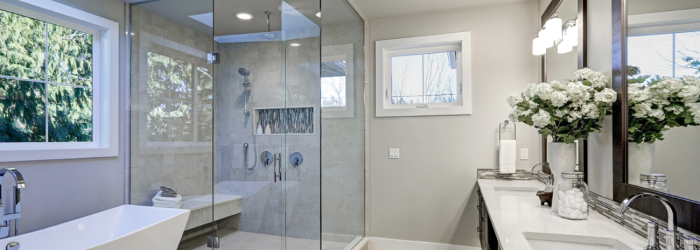
Renovating your bathroom is a fantastic way to enhance your home’s value and appeal. A modern, well-designed bathroom can create a relaxing retreat and make a strong impression on potential buyers. When done right, bathroom upgrades can offer a substantial return on investment.
What to Renovate:
- Fixtures: Updating outdated fixtures with sleek, contemporary options can instantly modernise your bathroom. Consider installing a new faucet, showerhead, or toilet to refresh the space.
- Vanity: Replacing an old vanity with a stylish, new one can greatly improve both the look and functionality of your bathroom. Look for vanities with ample storage and a modern design.
- Tiles: New tiles can dramatically change the aesthetic of your bathroom. High-quality materials like ceramic, porcelain, or natural stone, add a touch of elegance. Consider tiling both the floors and walls for a cohesive look.
- Shower or Tub: Upgrading to a luxurious shower or tub can turn your bathroom into a spa-like haven. Frameless glass showers or a freestanding tub are also popular choices that can add a modern flair.
House Renovation Costs and Returns:
- Average Upgrade Price: The cost of renovating a bathroom varies depending on the scope of the project and the quality of materials. On average, in 2024, a bathroom remodel can range from £5,000 to £10,000. This typically covers new fixtures, vanity, tiles, and an upgraded shower or tub.
Average Return: Bathroom renovations generally offer a strong return on investment. You can expect to recoup around 45% to 70% of the renovation cost when selling your home. For example, if you invest £8,000 in a bathroom remodel, you might see an increase in your home’s value from £3,600 to £5,600.
3. Enhancing Curb Appeal
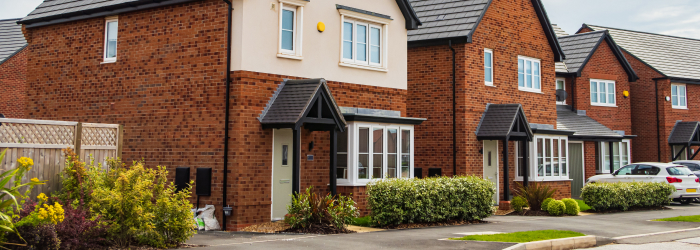
The exterior of your home is the first thing people see, and making a great first impression can significantly impact your property’s value. Enhancing your home’s curb appeal involves improving the exterior aesthetics to make it more inviting and attractive. This not only boosts your home’s charm but can also increase its market value.
What to Enhance:
- Landscaping: Fresh landscaping can transform your front garden. Consider planting vibrant flowers, adding shrubs, or laying down new mulch. Well-maintained lawns and neat garden beds create a welcoming atmosphere.
- Front Door: A new front door can make a striking impact. Choose a door with a stylish design and quality finish. Adding a fresh coat of paint or new hardware, such as a modern handle and lock, can also enhance its appeal.
- Outdoor Lighting: Updated outdoor lighting can brighten up your home’s exterior and highlight its best features. Install new fixtures along walkways, around the front door, and in the garden to create a warm and inviting ambience.
House Renovation Costs and Returns:
- Average Upgrade Price: The cost of enhancing curb appeal can vary depending on the extent of the changes. In 2024, on average, investing in landscaping, a new front door, and outdoor lighting can range from £1,500 to £4,000. This budget typically covers basic landscaping improvements, a mid-range front door, and updated lighting fixtures.
- Average Return: Improving curb appeal generally offers a strong return on investment. You can expect to recoup approximately 75% to 100% of the costs when selling your home. For instance, if you spend £2,500 on enhancing curb appeal, you might see an increase in your home’s value of around £1,875 to £2,500.
4. Adding Living Space
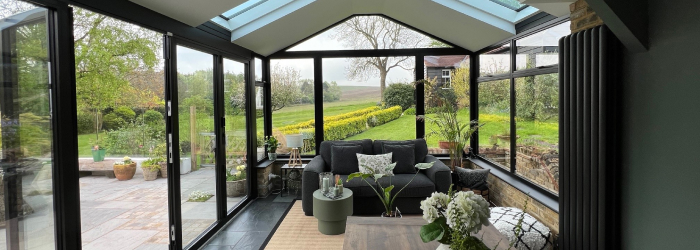
Expanding your home’s square footage with a well-designed extension or conservatory can significantly boost its value and overall comfort. Adding a new living space, such as a conservatory or an additional room, provides versatility and increases the usable area of your home, making it more appealing to potential buyers.
What to Add:
- Conservatory: A conservatory is a fantastic option for expanding your living area. This new space can serve as a dining room, lounge, or home office. Make sure to choose a design that complements your existing home.
- For an existing conservatory, consider replacing your roof for the added benefits of improved insulation, energy efficiency, and aesthetic appeal. A new roof can make your conservatory more comfortable year-round, reduce utility bills, and enhance the overall look of your home.
- Our roofing solutions can significantly cut down on noise and glare, creating a more pleasant living space. For expert advice and support on the best roof replacement options for your conservatory, get in touch today.
- Extension: Adding a traditional extension, such as a new room or a larger kitchen, can significantly increase your home’s square footage. This type of project can provide extra living areas, such as an additional bedroom, playroom, or home gym, depending on your needs and preferences.
- Loft Conversion: Converting your loft into a functional living space is another effective way to add square footage without extending the footprint of your home. Loft conversions can create extra bedrooms, office space, or a cosy retreat.
House Renovation Costs and Returns:
- Average Upgrade Price: The cost of adding living space varies based on the type of extension and its complexity. On average, in 2024, a conservatory can cost between £10,000 and £25,000, while a traditional extension or loft conversion might range from £20,000 to £50,000, depending on the size and specifications.
- Average Return: Adding living space generally offers a strong return on investment. You can expect to recoup around 60% to 80% of the costs when selling your home. For example, if you invest £30,000 in an extension, your home’s value might increase by approximately £18,000 to £24,000.
5. Improving Energy Efficiency
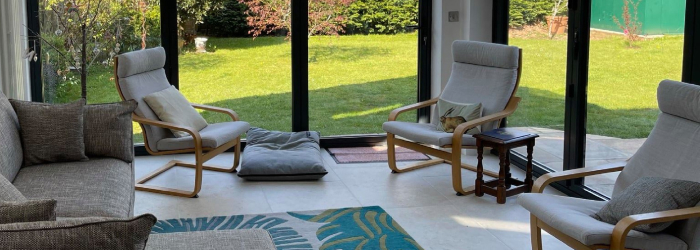
Enhancing your home’s energy efficiency is a smart investment that can lead to lower utility bills and make your property more attractive to environmentally-conscious buyers.
What to Improve:
- New Windows: Upgrading to energy-efficient windows can significantly reduce heat loss and improve insulation. Look for windows with double or triple glazing and low-emissivity (Low-E) coatings that help maintain a consistent indoor temperature and minimise energy waste.
- Better Insulation: Improving your home’s insulation, including loft and wall insulation, helps keep your home warm in winter and cool in summer. High-quality insulation reduces the need for heating and cooling, leading to lower energy costs.
- Energy-Efficient Doors: Replacing old doors with energy-efficient models can enhance insulation and security. Look for doors with good thermal performance ratings and weather seals to prevent drafts and heat loss.
House Renovation Costs and Returns:
- Average Upgrade Price: The cost of improving energy efficiency can vary depending on the specific upgrades and your home’s size. On average, in 2024, energy-efficient windows may cost between £300 and £800 per window. Insulation costs can vary depending on the size of the house, the average is upwards of £10,000. Upgrading to energy-efficient doors typically costs between £500 and £1,500 per door.
- Average Return: Energy-efficient upgrades generally offer a strong return on investment. You can expect to recover around 60% to 90% of the costs when selling your home. For instance, if you spend £4,000 on energy-efficient improvements, your home’s value could increase by approximately £2,400 to £3,600.
6. Upgrading Flooring
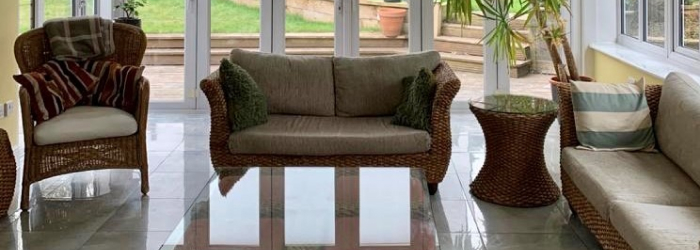
Revamping your home’s flooring can significantly elevate its appearance and functionality, making it more appealing to potential buyers. High-quality flooring not only enhances the aesthetic appeal of your home but also improves durability and can be a key factor in boosting your property’s value.
What to Upgrade:
- Hardwood Flooring: Replacing worn-out carpets with hardwood floors is a popular choice for adding style and value to your home. Hardwood flooring offers a timeless look, is easy to maintain, and can last for decades with proper care.
- Modern Tiles: Installing modern tiles, such as ceramic or porcelain, in areas like the kitchen, bathroom, or entryway can add a stylish touch and improve durability. Tiles are resistant to stains and moisture, making them a practical choice for high-traffic areas.
- Luxury Vinyl Plank (LVP): For a cost-effective alternative that mimics the look of hardwood or stone, consider luxury vinyl plank flooring. It offers a durable, water-resistant surface that’s easier to maintain and often more affordable than traditional options.
House Renovation Costs and Returns:
- Average Upgrade Price: The cost of upgrading flooring can vary based on the material and the size of the area. On average, in 2024, hardwood flooring can range from £60 to £115 per square metre, including installation. Modern tiles may cost between £20 and £50 per square meter, while luxury vinyl plank flooring typically ranges from £15 to £35 per square metre.
- Average Return: Flooring upgrades generally offer a good return on investment. You can expect to recover around 70% to 80% of the costs when selling your home. For example, if you invest £5,000 in new flooring, your home’s value might increase by approximately £3,500 to £4,000.
7. Investing in Smart Home Technology
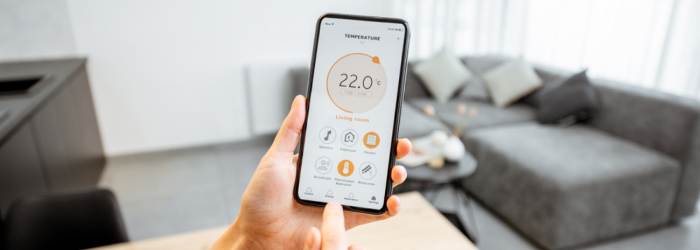
Adding smart home technology to your property can provide a modern edge and enhance convenience, making it more attractive to tech-savvy buyers. These features not only improve daily living but also offer energy savings and added security, contributing to your home’s overall value.
What to Invest In:
- Smart Thermostats: Installing a smart thermostat allows for precise control of your home’s temperature from your smartphone. These devices can learn your schedule and adjust settings automatically, leading to energy savings and increased comfort.
- Smart Security Systems: Upgrading to a smart security system with features like cameras, motion sensors, and smart locks enhances your home’s security. These systems provide real-time alerts and remote monitoring, offering peace of mind for homeowners.
- Automated Lighting: Smart lighting systems allow you to control lights remotely and set schedules or moods through a smartphone app. This adds convenience and energy efficiency, as you can easily manage lighting when you’re not at home.
House Renovation Costs and Returns:
- Average Upgrade Price: The cost of smart home technology varies based on the complexity and number of devices. On average, in 2024, a smart thermostat can cost between £150 and £250, a comprehensive smart security system may range from £300 to £1,000, and automated lighting systems typically start at around £100 and can go up depending on the setup.
- Average Return: Smart home upgrades can offer a good return on investment, particularly as technology becomes increasingly popular. You might expect to recover around 50% to 70% of the costs when selling your home. For example, investing £1,000 in smart technology could potentially add £500 to £700 to your home’s value.
8. Creating Outdoor Living Spaces
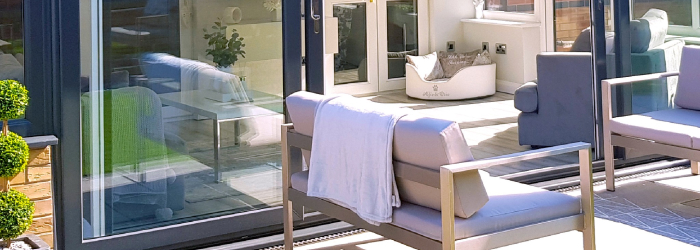
Transforming your outdoor areas into inviting living spaces can significantly boost your home’s appeal and value. A well-designed deck, patio, or garden creates additional areas for relaxation and entertainment, making your property more attractive to potential buyers.
What to Create:
- Decks and Patios: Adding a deck or patio can extend your living space outdoors, offering a perfect spot for dining, lounging, or entertaining. Durable materials like composite decking or natural stone provide a stylish and low-maintenance option.
- Outdoor Kitchens: Incorporating an outdoor kitchen with features like a grill, countertop, and sink can elevate your patio or deck area, making it a fantastic space for gatherings and cooking alfresco.
- Landscaped Gardens: Investing in a beautifully landscaped garden with features such as pathways, flower beds, and seating areas enhances your outdoor space. Well-maintained gardens can create a tranquil retreat and improve the overall aesthetics of your property.
House Renovation Costs and Returns:
- Average Upgrade Price: The cost of creating outdoor living spaces can vary depending on the project. A basic deck or patio installation might range from £2,000 to £5,000 (in 2024) while more elaborate setups with outdoor kitchens or high-end landscaping could cost between £5,000 and £15,000 or more.
- Average Return: Outdoor living space upgrades generally offer a strong return on investment. You can expect to recover about 60% to 70% of the costs when selling your home. For instance, investing £8,000 in an upgraded deck and garden could potentially increase your home’s value by approximately £4,800 to £5,600.
9. Painting and Refreshing Interiors
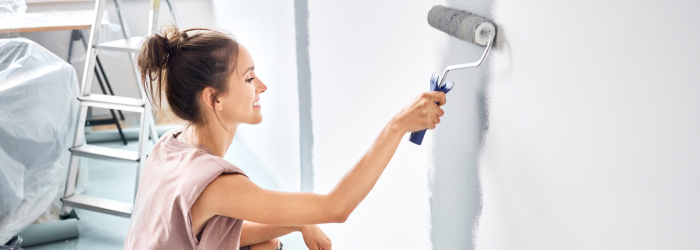
Revitalising your home’s interior with a fresh coat of paint is one of the simplest yet most effective ways to enhance its appeal. Choosing modern, neutral colours can make your home feel brighter and more inviting, creating a blank canvas that potential buyers can easily imagine themselves in.
What to Refresh:
- Walls: Repainting walls in neutral tones like beige, grey, or soft whites can instantly update and brighten your living spaces. Neutral colours create a clean and spacious feel, which can appeal to a broader audience.
- Trim and Moulding: Don’t overlook the impact of refreshed trim and moulding. A fresh coat of paint on these details can provide a polished look and complement the new wall colours.
- Doors and Cabinets: Updating interior doors and cabinetry with a fresh coat of paint or a new finish can give your home a modern and cohesive look. This is especially effective in kitchens and bathrooms.
House Renovation Costs and Returns:
- Average Upgrade Price: The cost of painting and refreshing interiors can vary based on the size of your home and the quality of materials used. On average, in 2024, you might spend between £1,000 and £3,500 for a full interior paint job, including walls, trim, and doors.
- Average Return: Painting and refreshing interiors typically offer a solid return on investment. You can expect to recover around 60% to 100% of the costs when selling your home. For example, spending £2,000 on interior painting might increase your home’s value by approximately £1,200 to £2,000.
10. Enhancing Storage Solutions
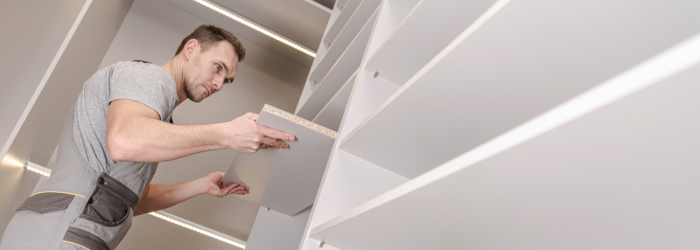
Upgrading your home’s storage solutions can have a significant impact on both its functionality and appeal. Effective storage systems not only help keep your home organised but also appeal to buyers who value efficient use of space. Here’s how you can enhance storage solutions:
What to Enhance:
- Custom Closets: Installing built-in closets with adjustable shelving and organisational features can optimise storage space in bedrooms, hallways, and entryways. Custom closets add a touch of luxury and practicality, making them a highly attractive feature for prospective buyers.
- Shelving Systems: Adding or updating shelving in key areas like living rooms, kitchens, and home offices can provide additional storage and display space. Floating shelves or built-in bookcases can make a room feel more functional and stylish.
- Garage Organisation: Upgrading your garage with organisational systems such as wall-mounted racks, shelving units, and storage cabinets can maximise space and keep everything neatly arranged. A well-organised garage can be a major selling point for buyers looking for practical storage solutions.
House Renovation Costs and Returns:
- Average Upgrade Price: The cost of enhancing storage solutions can vary based on the complexity and size of the project. On average, in 2024, you might spend between £500 and £2,500, depending on whether you’re installing custom closets, shelving, or garage systems.
- Average Return: Investing in enhanced storage solutions can yield a solid return. Homebuyers often prioritise homes with ample and well-organised storage, potentially increasing your home’s value by up to 50% of the upgrade cost. For instance, spending £1,500 on custom closets and shelving could increase your home’s value by approximately £750 to £1,000.
When considering ‘What adds value to a house?’ remember that not all renovations will boost every property’s value equally. What increases one home’s value might not have the same effect on another. The trick is to choose renovations that fit your home, the preferences of buyers in your area, and current market trends.
So, take a moment to explore your options, and plan your upgrades to get the best return.

